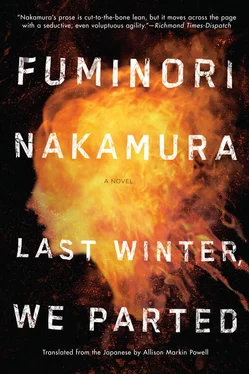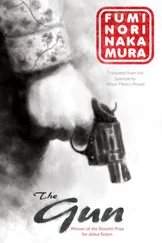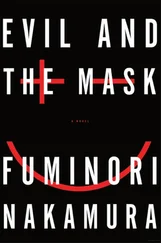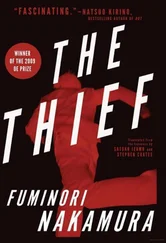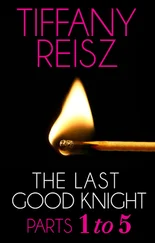I started watching Kiharazaka. I shadowed him, planting myself outside his house when he was home and keeping watch. The studio where the fire occurred was on the same property as his home, and it was left in its burned out state. His new studio was housed in a crude looking shed-like building. He definitely looked worn out. Was it really an accident? I didn’t know what kind of relationship had developed between you and him, but if you were lovers then he would have been a brokenhearted man, just like me. In the midst of my grief, this humanized him to me. Without a doubt, he had been careless, but I too had once almost lost you in a traffic accident. And then, because I was trying to straighten myself out , I had let you out of my sight, and I had let you die. I thought about meeting with him. I was tormented. Unsure of what to do, I lapsed back into old habits, and spent my time keeping watch at Kiharazaka’s house. I also ordered all sorts of back issues of magazines to see his photographs. Most of the subjects in his work were shot at quite close range, and his meticulous fixation on details was apparent, yet I didn’t think he seemed crazy enough to kill someone.
It was around this time when I heard the rumors about the doll creator. Living with a doll … I couldn’t imagine it, but I thought I’d go to see him, just to hear what he had to say. I must have been fascinated by the fact that some people even started to hear their doll’s voice. When I think about the condition I was in at the time, hearing voices didn’t seem like a strange phenomenon at all. I wanted to hear your voice again. I thought that meant I was crazy but it didn’t matter. Maybe I wanted to retreat into madness in order to escape this world.
The man who greeted me was much cheerier than I expected. This was the doll creator, Suzuki. When I nervously showed him a photo of you, his expression changed. He looked at me calmly and asked, “What kind of relationship did you have with this woman?”
“… I dated her a long time ago.”
When I said this, he gazed at me even more steadily. Then he silently got up from his seat and took down an envelope from a shelf.
“These are horrible photographs. Are you prepared to see them?”
Not knowing what they were, I nodded automatically, and the photos were placed in front of me. Photos of you, on fire. Photos of you, engulfed in flames.
My vision narrowed, and it took me some time to realize that the sensation I felt was nausea. Suzuki the doll creator started speaking again.
“The fact is, Kiharazaka and I are close. He said that he hadn’t taken any photographs, but the truth is that he did. He couldn’t show them to anyone, nor could he keep them, so he asked me to hold them for him. He said that an artist like me was the only person in the world he could trust, and he insisted that I absolutely couldn’t show them to anyone. Seeing these photos, I didn’t know what to do. I don’t care much for the police. But I couldn’t just keep them a secret like this either. They were proof that he murdered her.”
He was speaking very deliberately, as if choosing every word.
“I was terribly disturbed, but … I will entrust these photographs to you. To your own discretion.”
However, something seemed strange to me. Something about the photographs. Having worked as an editor, I happened to know a lot about photography. I took the photographs from Suzuki and brought them to a photographer I knew. A few days later, he told me he was of the same opinion. He agreed that these were composites.
The shot of your face on fire was a composite photograph. As well as the one of you being consumed by the flames. To be sure, twenty-one of the photographs were not composites. Among those were two shots of you, with your legs bound and looking very thin, sleeping on top of a pedestal. There were no flames in either photo, or any sign of fire. The remaining nineteen photos were of flames. But they were all taken from a distance.
If Kiharazaka had burned you to death, in order to photograph the scene in the manner of Ryunosuke Akutagawa’s “Hell Screen,” wouldn’t he have persisted in following through completely, as shown in the composites? If he were going to burn you that way, there would be no point in photographing it as a long shot. By now I’ve seen nearly all of his photographs. These long-shot photographs — all of the ones that were the real thing and not composites — didn’t seem like his work at all.
I wondered if the truth was something else. Judging from the photos, he had been holding you captive. Forcing you to sleep and binding your legs, not letting you move around. That would fit with what the article said, that a candle being used as some kind of prop had fallen over and started the fire. When he realized it, he had hurriedly clicked away with his camera, rather than try to rescue you. Judging by the layout of the non-composite photos, he could have saved you before the flames overtook you. You would probably still have suffered burns all over your body, but judging from these photos, it definitely seems possible that he could have dragged you out of the flames —had he not stopped to take nineteen photographs . In what appears to be the last photo he actually shot, you are already completely immersed in flames.
Yet none of these photographs are successful. Not the least bit stimulating to the viewer — they are no more than mediocre. I can’t help but think that the composition of the close-ups in the composite photographs was motivated by his regret — that these were the photographs he had really wanted to capture.
I tried to verify my hypothesis. I thought if I went to see Kiharazaka, though, I’d end up killing him. So I met with his sister. She was living on her own in Ueno, off an inheritance from her grandfather.
After hearing what I had to say, she bowed deeply. Then she told me that what I had said was probably correct. That her brother may not be a respectable fellow, but he didn’t have the nerve to kill someone. That he may not have killed you directly himself, but morally, he bore an immense responsibility in your death. And that he now seemed destroyed. Then she said, as for what to do with these photographs, that of course she would leave it up to me. She was crying the whole time.
To have a brother like that, one whom she used to love … Kiharazaka’s sister Akari seemed weary of her life, a woman beset by countless miseries. When I asked her, she said that she had lost two people dear to her, men with whom she had been in love.
I was at a loss. If I brought the photographs to the police, Yudai Kiharazaka would be charged with one crime or another. But he wouldn’t be sentenced to death. The murder wasn’t premeditated, and there was only one victim. Even though he’d go to prison, he’d be out again in a few years. Yet as far as society was concerned, he’d have paid for his crime.
Akari asked me to see her again. She said it might not be her place to say such a thing, but she thought that being with me seemed to make her feel a little better. I started seeing her often after that, all the while worrying about what I should do next. I told her about my relationship with you. She told me about how she had lost one of the men who had been dear to her. A traffic accident, she said. She cried quietly while she told the story.
Some time after I first met Akari, we were just leaving each other at a coffee shop when someone called out to me from behind. The man looked terribly sad. He was around the same age as me, about thirty-five or thirty-six, and he wore an expensive suit.
“We need to talk,” He said to me abruptly.
“… You and me? What for?”
“It’s about Akari Kiharazaka … Please excuse me, but I know all about you.”
Читать дальше
